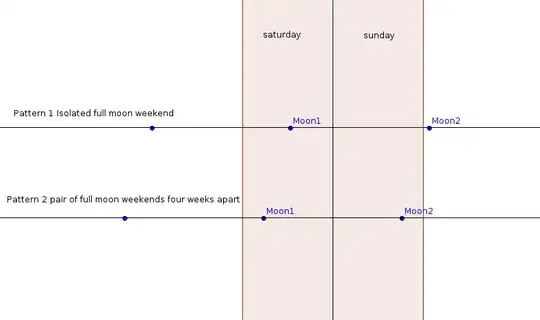Exactly 2/7 of time is "weekend", There is no exact alignment of the lunar orbit to the length of a week, so a full moon is equally "likely" to be at the weekend
So 2/7 of full moons occur at the weekend. As the synodic month is about 29.5 days there are about 1245 New Moons per century, so you'd get about 356 on the weekend. This full moon (10th Sept) is on Saturday, and next full moon, 9th October 2022 is on Sunday (at my location)
However the moon appears full for a couple of days on either side of the moment at which its longitude is 180° relative to the Sun. This being the case, the moon will appear full at the weekend if it is exactly full on any day between Thursday and Tuesday - which means that most months will have a moon that looks full at the weekend.
Now to think about this in a different way, in a century there are 5218 weekends (±1) and 356 are "full moon weekends", so about 6.8% of weekends are full moon weekends, or to put it another way 1 weekend in 14.66 is a full moon weekend.
On average, you need to wait for 14.66 weeks before you get another full moon weekend. But this is an average: the pattern of full moon weekends is not at all random. In fact what tends to happen is that there is one full moon weekend, followed four weeks later by second one. Then a gap of more than 14 weeks, before the pattern almost repeats.
So (in my location) there is a full moon on Saturday 10th Sept and Sunday 9th Oct. Then it proceeds: Tuesday in Nov, Thursday in Dec, Friday in Jan, then Sunday 5th February. That is 17 weeks after the October full moon weekend.
Thus, final answers: 2/7 of full moons are at the weekend. 2/29.530588 = 6.8% of weekends have a full moon.
